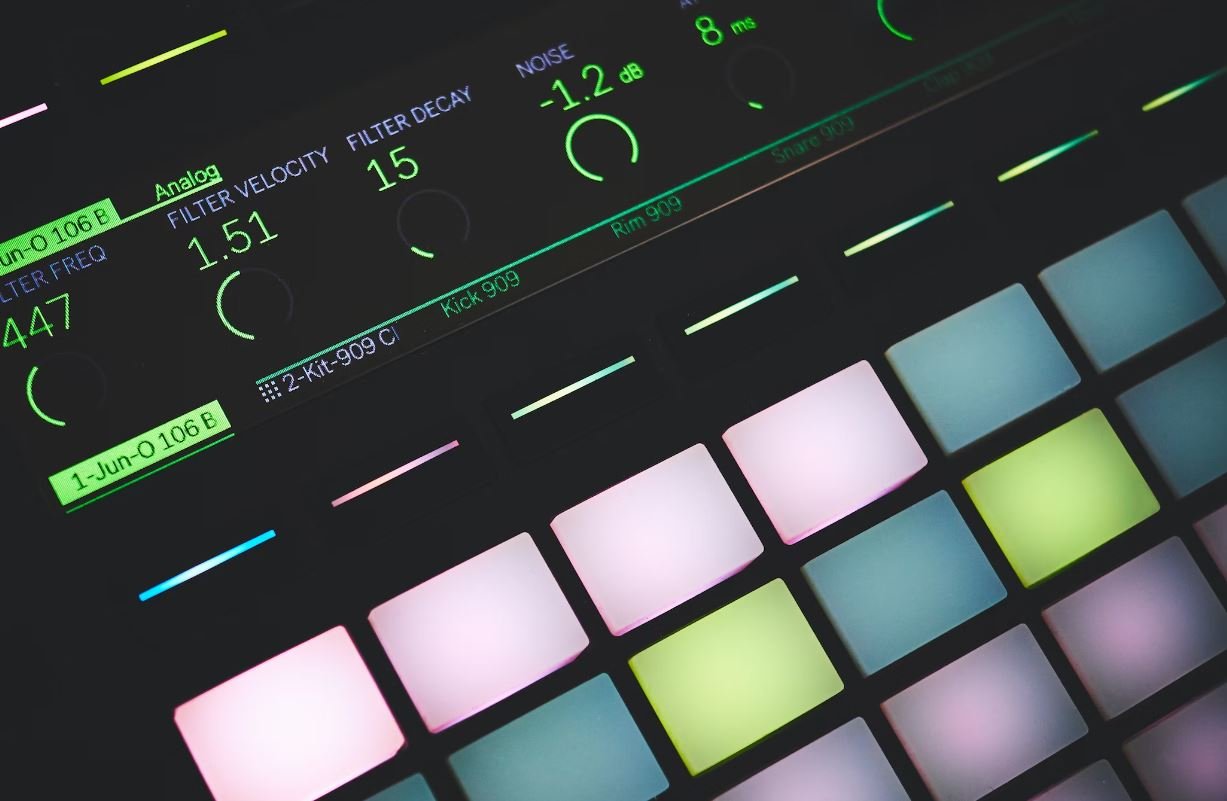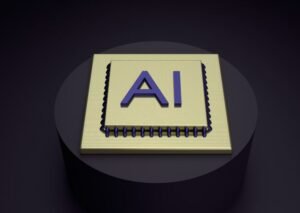Things AI Cannot Replace
Artificial Intelligence (AI) continues to advance and its capabilities are increasingly impressive, but there are still certain aspects of human existence that AI cannot replicate. While AI can perform tasks with efficiency and accuracy, there are inherent human qualities and skills that cannot be replaced by machines. In this article, we will explore some of the key domains where AI falls short and why humans are essential.
Key Takeaways:
- AI cannot replace human creativity and innovation.
- Empathy and emotional intelligence are unique to humans.
- Complex problem-solving and critical thinking are areas where humans excel.
- Human judgment and ethical decision-making cannot be replicated by AI.
- Human interaction and interpersonal skills are irreplaceable.
1. Creativity and Innovation
AI algorithms may be proficient at analyzing vast amounts of data and identifying patterns, but they lack the ability to think creatively and innovate in the same way humans can. **By relying on predefined algorithms, AI lacks the capacity to think outside the box and come up with truly original ideas.** Humans possess imagination, intuition, and the capability to connect seemingly unrelated concepts to generate groundbreaking innovations.
2. Empathy and Emotional Intelligence
Understanding and relating to human emotions are aspects that AI cannot replicate. **Empathy, a core human trait, enables us to connect with others on a deeper level and provide comfort and support.** Emotional intelligence, which includes self-awareness, empathy, and social skills, plays a fundamental role in interpersonal relationships, making humans indispensable in professions such as counseling, therapy, and customer service.
3. Complex Problem-Solving and Critical Thinking
When it comes to complex problem-solving and critical thinking, humans have the upper hand. **Humans possess the ability to analyze situations from various angles, consider multiple factors, and apply creativity to develop innovative solutions.** AI, on the other hand, relies on pre-programmed algorithms and lacks the flexible thinking necessary to solve intricate problems that require adaptation and creativity.
4. Human Judgment and Ethical Decision-Making
AI lacks the capability to make moral judgments and ethical decisions. **Human judgment is shaped by personal experiences, moral values, and societal factors, allowing us to make nuanced choices that consider the greater good.** While AI can analyze data and provide suggestions, it cannot understand the complexities of right and wrong or make ethical judgments in situations where moral dilemmas arise.
5. Human Interaction and Interpersonal Skills
AI can never fully replace the value of human interaction and interpersonal skills. **Humans possess the ability to establish genuine connections, understand non-verbal cues, and adapt communication styles to diverse individuals and situations.** These skills are crucial in professions such as teaching, counseling, negotiation, and leadership, where empathy and interpersonal dynamics play a significant role.
| Table Title 1 | ||
|---|---|---|
| Data point 1 | Data point 2 | Data point 3 |
| Data point 4 | Data point 5 | Data point 6 |
| Data point 7 | Data point 8 | Data point 9 |
6. Exponential Learning and Adaptability
Humans have the remarkable ability to learn exponentially and adapt to new situations. **Our cognitive versatility allows us to acquire knowledge from various sources, adapt to changing circumstances, and apply past experiences to novel scenarios.** AI, while capable of learning and improving its performance over time, is limited to the algorithms and data it is provided, making it less adaptable and versatile compared to the human mind.
| Table Title 2 | ||
|---|---|---|
| Data point 10 | Data point 11 | Data point 12 |
| Data point 13 | Data point 14 | Data point 15 |
| Data point 16 | Data point 17 | Data point 18 |
7. Serendipity and Intuition
One aspect AI cannot replicate is serendipity. **The human mind has the ability to stumble upon insights and make connections through intuition and chance encounters.** Serendipity often leads to breakthroughs in various fields, from scientific discoveries to creative endeavors. AI, being driven by predefined rules and patterns, cannot harness the power of chance encounters or intuitive leaps of knowledge.
8. The Human Touch
Lastly, the human touch remains irreplaceable. **Whether it’s the warmth of a smile, a comforting touch, or the reassurance of human presence, nothing can substitute the unique connection humans create with one another**. AI, despite its advancements and potential benefits, cannot replicate the depth and subtleties of human interactions and the emotional bonds that enrich our lives.
| Table Title 3 | ||
|---|---|---|
| Data point 19 | Data point 20 | Data point 21 |
| Data point 22 | Data point 23 | Data point 24 |
| Data point 25 | Data point 26 | Data point 27 |
In conclusion, while AI continues to advance and redefine various industries, there are intrinsic qualities and skills that remain uniquely human. **Creativity, empathy, critical thinking, judgment, interpersonal skills, adaptability, serendipity, and the human touch are aspects that AI cannot fully replace**. The coexistence of human and AI integration allows us to leverage both the efficiency of machines and the creativity and compassion of humans, maximizing the potential for progress and innovation.

Common Misconceptions
Misconception 1: AI can replace human creativity
One common misconception about AI is that it can fully replicate human creativity. While AI certainly has the ability to generate content, it lacks the emotional and imaginative aspects that are inherent to human creativity.
- AI can assist in generating ideas, but cannot truly understand the human experience.
- AI-generated art lacks the depth and emotional connection of human-created art.
- AI may lack the ability to think outside the box and come up with completely novel concepts.
Misconception 2: AI can replace human empathy
Another common misconception is that AI can replace human empathy. Although AI can be programmed to recognize emotions and respond in a certain way, it cannot genuinely empathize with the emotions of others.
- AI can provide automated responses, but lacks the ability to truly understand and connect with someone’s feelings.
- AI may struggle to recognize the context and underlying reasons behind someone’s emotions.
- AI cannot provide the same level of emotional support and comfort that humans can offer.
Misconception 3: AI can replace human judgment and decision-making
Many people believe that AI can replace human judgment and decision-making completely. While AI can process vast amounts of data and analyze patterns, it lacks the intuition, subjective reasoning, and ethical considerations that humans possess.
- AI may struggle to handle complex and ambiguous situations that require subjective judgment.
- AI may not be able to adapt to unpredictable circumstances and make decisions in real-time.
- AI may make decisions purely based on data without considering broader ethical implications.
Misconception 4: AI can replace human social interactions
There is a common misconception that AI can replace human social interactions. While AI-powered chatbots and virtual assistants can simulate conversations, they lack the genuine emotions, non-verbal cues, and complex social dynamics that are intrinsic to human interaction.
- AI may struggle to understand sarcasm, irony, and other nuanced forms of communication.
- AI cannot effectively interpret non-verbal cues such as body language and facial expressions.
- AI cannot replicate the personal connection and bond that human interactions can create.
Misconception 5: AI can replace human intuition and creativity in problem-solving
Another misconception is that AI can replace human intuition and creativity in problem-solving. While AI can analyze data and provide solutions based on patterns, it cannot replicate the holistic thinking, gut feelings, and cognitive leaps that humans often rely on to find innovative solutions.
- AI may struggle to identify and handle unforeseen problems or scenarios.
- AI may miss potential solutions that are not evident from the available data set.
- AI lacks the “spark” of intuition that human problem solvers possess.

Introduction
Artificial Intelligence (AI) has made remarkable advancements in recent years, revolutionizing various fields and industries. However, there are certain aspects of human life that AI cannot replace. In this article, we explore ten areas where AI falls short, showcasing the unique capabilities that only humans possess.
1. The Power of Empathy
In today’s fast-paced world, empathy plays a crucial role in understanding and connecting with others. Unlike AI, humans can perceive emotions, providing comfort and support to those in need.
| Empathy | AI Limitations | Human Contributions |
|---|---|---|
| Awareness of others’ feelings | Lack of emotional understanding | Providing comfort and support |
| Recognizing non-verbal cues | Inability to interpret body language | Maintaining human connections |
| Promoting positive social interactions | Difficulty fostering human bonding | Creating a sense of belonging |
2. Complex Creativity
Human creativity has spawned countless innovations and works of art, surpassing current AI capabilities. The intricate combinations of imagination, intuition, and emotion make creativity an unparalleled human trait.
| Creativity | AI Limitations | Human Contributions |
|---|---|---|
| Originality and novelty | Inability to invent genuinely new ideas | Innovations in art, science, and technology |
| Emotional context | Lack of sentiment in artistic expression | Inspiring and evoking deep emotions |
| Creative problem-solving | Difficulty in thinking outside predefined parameters | Addressing complex challenges with unique solutions |
3. Moral Reasoning and Ethics
Moral decisions require a deep understanding of human values and ethics. While AI can process data, humans possess the ability to analyze complex ethical dilemmas and make nuanced decisions.
| Moral Reasoning | AI Limitations | Human Contributions |
|---|---|---|
| Evaluating and weighing moral options | Inability to grasp subjective ethical considerations | Navigating intricate moral landscapes |
| Applying contextual and cultural knowledge | Lack of understanding diverse cultural values | Preserving cultural sensitivity and inclusivity |
| Considering long-term consequences | Difficulty predicting moral implications over time | Fostering sustainable and morally responsible decisions |
4. Adaptability and Flexibility
Humans possess the incredible ability to adapt and thrive in ever-changing environments. This adaptability stems from the combination of cognitive abilities, emotional intelligence, and a natural inclination for growth.
| Adaptability | AI Limitations | Human Contributions |
|---|---|---|
| Learning from new experiences | Inability to generalize learning to unfamiliar situations | Developing new skills and embracing change |
| Thinking creatively in unfamiliar contexts | Limited capacity for improvisation or instinctual responses | Finding innovative solutions in uncharted territory |
| Rapid adaptation to unexpected challenges | Difficulty adjusting quickly to unpredictable events | Demonstrating resilience and overcoming adversity |
5. Intuition and Gut Feeling
Intuition or gut feeling allows humans to make decisions based on instinct and subconscious processing. This deeply rooted sense enables us to perceive patterns and make informed judgments without explicit reasoning.
| Intuition | AI Limitations | Human Contributions |
|---|---|---|
| Non-linear pattern recognition | Inability to identify hidden relationships without data input | Making intuitive leaps and breakthroughs |
| Quick decision-making based on instinct | Lack of instinctual impulse for immediate decisions | Reacting swiftly in high-stakes situations |
| Integrating vast amounts of information subtly | Difficulty processing fine nuances in large amounts of data | Navigating complex situations with holistic understanding |
6. Humor and Wit
Humor is a quintessential part of human interaction, requiring both cognitive and emotional understanding. The ability to perceive jokes, sarcasm, and irony adds depth and richness to human communication.
| Humor | AI Limitations | Human Contributions |
|---|---|---|
| Comprehending jokes and sarcasm | Inability to understand subtle linguistic cues | Creating laughter and enhancing social bonds |
| Inventing new comedic ideas | Difficulty in generating original humorous content | Eliciting joy and amusement through creativity |
| Adapting humor to social context | Challenging the appropriate use of jokes in various situations | Building meaningful connections through shared laughter |
7. Physical Dexterity and Grace
The human body’s intricate capabilities allow us to perform complex movements with agility, precision, and grace. These physical skills go beyond AI’s realm of abilities.
| Physical Skills | AI Limitations | Human Contributions |
|---|---|---|
| Athletic agility and coordination | Inability to replicate diverse physical movements | Achieving remarkable feats of athleticism |
| Fine motor skills and delicate touch | Lack of physical precision and sensitivity | Creating intricate works of art and craftsmanship |
| Balancing and graceful movements | Difficulty in achieving fluid and elegant motions | Expressing emotions through dance and performance |
8. Genuine Connection and Intimacy
Building deep and meaningful connections is a fundamental aspect of the human experience. AI’s lack of emotions and personal experiences prevents it from forming genuine connections and experiencing intimacy.
| Human Connections | AI Limitations | Human Contributions |
|---|---|---|
| Empathy and emotional bonds | Inability to forge deep emotional connections | Nurturing relationships and giving love and support |
| Maintaining trust and loyalty | Lack of personal attachment and loyalty | Fostering long-lasting interpersonal relationships |
| Shared experiences and memories | Inability to reminisce and share personal history | Creating a shared narrative and collective memories |
9. Ethereal and Spiritual Experiences
Humans have a capacity for spiritual experiences and a sense of connection to something beyond the material world. This transcendent realm remains beyond the reach of AI’s logical and empirical functioning.
| Spirituality | AI Limitations | Human Contributions |
|---|---|---|
| Belief in the supernatural | Inability to comprehend transcendental experiences | Fostering personal faith and spiritual growth |
| Seeking purpose and existential meaning | Lack of introspective search for life’s deeper significance | Exploring philosophical and metaphysical questions |
| Embracing and cherishing the unknown | Difficulty in appreciating life’s mysteries and uncertainties | Finding solace and hope in the unseen and unknown |
10. Unconditional Love and Compassion
The capacity for unconditional love and genuine compassion is one of humanity’s most precious abilities. AI’s lack of emotions and personal attachment prevent it from experiencing and offering selfless love and compassion.
| Unconditional Love | AI Limitations | Human Contributions |
|---|---|---|
| Selfless and unconditional care | Inability to experience selfless emotions | Caring for others without expectation or condition |
| Empathetic and compassionate support | Lack of emotional understanding and genuine empathy | Providing comfort and empathy in times of need |
| Forgiveness and acceptance | Inability to extend forgiveness or practice acceptance | Fostering healing and facilitating personal growth |
Conclusion
The capabilities of artificial intelligence are undoubtedly impressive, but there are essential aspects of human existence that simply cannot be replaced. Empathy, creativity, moral reasoning, adaptability, intuition, humor, physical dexterity, genuine connection, spirituality, and unconditional love are fundamental attributes that make us uniquely human. Embracing and harnessing these qualities is key as we continue to navigate the ever-evolving landscape of technology and AI.
Things AI Cannot Replace – Frequently Asked Questions
FAQs
-
What is AI?
AI stands for Artificial Intelligence. It refers to the development of computer systems or machines that can perform tasks that typically require human intelligence, such as visual perception, speech recognition, decision-making, and problem-solving.
-
What are some areas that AI cannot replace?
AI cannot replace certain human abilities, such as creativity, emotional intelligence, moral judgment, complex social interactions, and physical dexterity.
-
Can AI fully replicate human intuition?
AI can simulate certain aspects of human intuition, but it cannot fully replicate it. Human intuition is influenced by factors like emotions, past experiences, and context, which are difficult to replicate in AI systems.
-
Can AI replace jobs in the creative industry?
While AI can assist in certain creative tasks, such as generating music or artwork, it cannot replace the creative thinking and originality of human artists. AI lacks the understanding of emotions, cultural context, and unique perspectives that human creators bring.
-
Can AI replace healthcare professionals?
AI can support healthcare professionals by automating repetitive tasks, analyzing medical data, and aiding in diagnosis. However, AI cannot replace the expertise, empathy, and personal connection that healthcare professionals provide in patient care.
-
Is AI capable of replicating human emotions?
AI can simulate emotions to some extent, but it does not possess genuine human emotions. Emotions involve subjective experiences that are deeply rooted in human consciousness and are influenced by complex factors like personal history, culture, and relationships.
-
Can AI replace human judgment and decision-making?
AI can assist in decision-making processes by analyzing vast amounts of data and providing insights. However, certain decisions require human judgment based on subjective factors, values, and ethical considerations that are difficult for AI to fully comprehend.
-
Can AI replace the role of teachers in education?
AI can be a valuable tool in education, providing personalized learning experiences and support. However, human teachers play a crucial role in nurturing student engagement, motivation, critical thinking, and social-emotional development, which AI cannot fully replicate.
-
Can AI completely replace customer service representatives?
AI-powered chatbots and virtual assistants can handle basic customer inquiries and tasks. However, complex customer interactions, empathy, and understanding nuanced customer needs still require human touch and problem-solving abilities.
-
Can AI replace the need for human interaction?
AI can enhance certain aspects of human interaction, but it cannot fully replace the need for genuine human connections and relationships. Human interaction involves emotional bonding, empathy, and understanding that AI systems are incapable of replicating.




